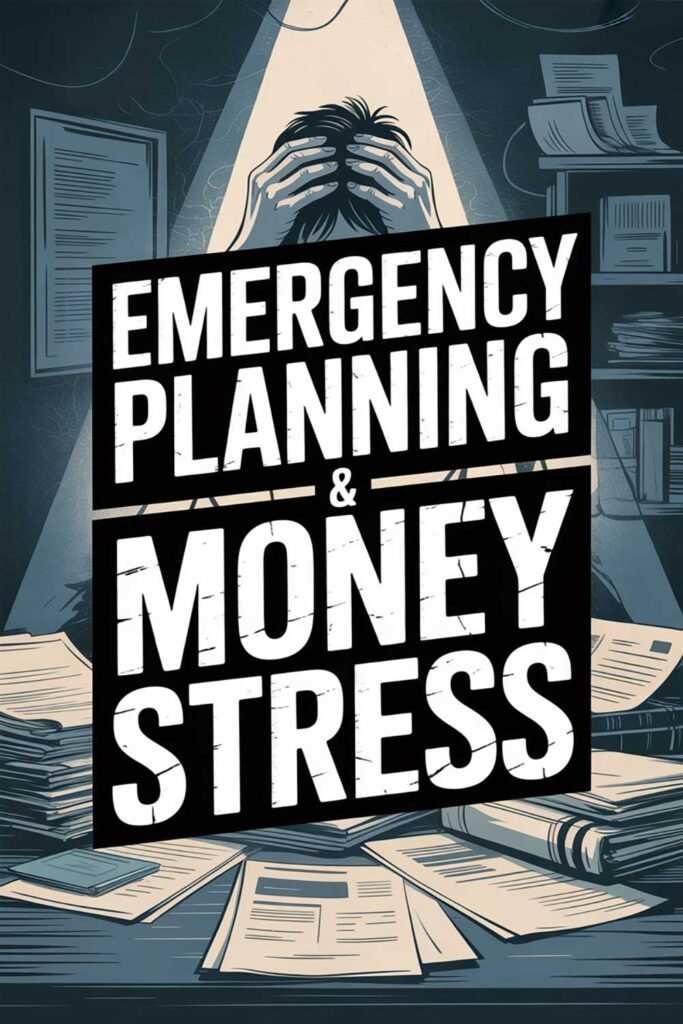8 Key Principles for Financial Success
Financial success isn’t about luck or having a high income—it’s about mindset, strategy, and consistent action. Anyone can build wealth, eliminate debt, and create financial freedom by following time-tested principles. Whether you’re just starting your financial journey or fine-tuning your path to prosperity, these 8 key principles can guide you to long-term financial success.

1. Live Below Your Means
Spending less than you earn is the cornerstone of every financial win. It creates room for saving, investing, and breathing easy.
Real-Life Example: Sarah made $45,000 a year but lived on $30,000. The rest went to paying off student loans and building a $10,000 emergency fund in 2 years.
Quick Tip: Use a 50/30/20 rule (50% needs, 30% wants, 20% savings) or create a custom spending plan.
2. Create and Stick to a Budget
Budgeting gives your money direction. It turns vague hopes into concrete plans and ensures every dollar has a job.
Real-Life Example: Marcus used a simple spreadsheet to track his income and expenses. Within six months, he cut $300 in wasteful spending and started saving for a car.
Quick Tip: Start with a monthly budget, review it weekly, and adjust as needed.
3. Build an Emergency Fund
Financial success isn’t just about growth—it’s about protection. An emergency fund helps you weather life’s storms without turning to credit cards.
Real-Life Example: Natalie lost her job unexpectedly. Thanks to her $6,000 emergency fund, she stayed afloat for three months while job hunting.
Quick Tip: Aim for 3–6 months of essential expenses in a separate savings account.
4. Invest Early and Consistently
Time is your biggest asset when it comes to growing wealth. The earlier you invest, the more your money compounds.
Real-Life Example: At 22, Kevin started investing $200/month in a Roth IRA. By 40, his balance grew to over $120,000 thanks to compounding.
Quick Tip: Use index funds or ETFs for low-cost, diversified investing. Automate contributions.
5. Pay Off High-Interest Debt Quickly
High-interest debt, like credit cards, is a silent wealth killer. Eliminating it frees up cash and reduces stress.
Real-Life Example: Jenny used the snowball method to pay off five credit cards in two years. She then redirected those payments to her savings.
Quick Tip: Tackle smallest debts first for quick wins or highest interest first for faster savings.
6. Set Clear Financial Goals
Goals give purpose to your money. When you know what you’re working toward, it’s easier to stay motivated and focused.
Real-Life Example: Carlos wanted to buy a house in 3 years. He created a savings plan and reached his $25,000 down payment goal right on time.
Quick Tip: Make your goals SMART: Specific, Measurable, Achievable, Relevant, and Time-bound.
7. Continuously Educate Yourself
Financial literacy is the foundation of financial independence. The more you know, the better decisions you make.
Real-Life Example: After reading “The Total Money Makeover” and listening to finance podcasts, Emma completely overhauled her money habits and became debt-free.
Quick Tip: Read one finance book or listen to one money podcast per month.
8. Surround Yourself With Support
Financial success doesn’t have to be lonely. Having supportive people around you makes a massive difference.
Real-Life Example: James joined a local money accountability group. Sharing progress and setbacks kept him inspired to stick with his financial goals.
Quick Tip: Find a mentor, friend, or group that shares your values and goals.
20 Inspirational Quotes About Financial Success
- “You must gain control over your money or the lack of it will forever control you.” — Dave Ramsey
- “Do not save what is left after spending, but spend what is left after saving.” — Warren Buffett
- “An investment in knowledge pays the best interest.” — Benjamin Franklin
- “Wealth consists not in having great possessions, but in having few wants.” — Epictetus
- “A budget is telling your money where to go instead of wondering where it went.” — John C. Maxwell
- “Compound interest is the eighth wonder of the world.” — Albert Einstein
- “Time is more valuable than money. You can get more money, but you cannot get more time.” — Jim Rohn
- “The goal isn’t more money. The goal is living life on your terms.” — Chris Brogan
- “Formal education will make you a living; self-education will make you a fortune.” — Jim Rohn
- “Financial freedom is available to those who learn about it and work for it.” — Robert Kiyosaki
- “Success is the sum of small efforts, repeated day in and day out.” — Robert Collier
- “Discipline is the bridge between goals and accomplishment.” — Jim Rohn
- “A goal without a plan is just a wish.” — Antoine de Saint-Exupéry
- “Money looks better in the bank than on your feet.” — Sophia Amoruso
- “It’s not your salary that makes you rich, it’s your spending habits.” — Charles A. Jaffe
- “The best investment you can make is in yourself.” — Warren Buffett
- “Live like no one else so later you can live like no one else.” — Dave Ramsey
- “Small leaks sink great ships.” — Benjamin Franklin
- “Debt is normal. Be weird.” — Dave Ramsey
- “Money is only a tool. It will take you wherever you wish, but it will not replace you as the driver.” — Ayn Rand
Picture This
Imagine checking your bank account and smiling, not stressing. You have a healthy emergency fund, zero credit card debt, and investments that grow while you sleep. You don’t worry about the next bill or unexpected expense—you’re ready. You spend, save, and give with purpose. Your money no longer controls you—you control it.
What could your life look like if financial success became your everyday reality?
Share This Article
Know someone who wants to improve their financial life? Share this article or post it on social media. Help others unlock their path to financial success.
Disclaimer
This article is based on general financial principles and personal experience. It is intended for informational purposes only. Please consult a licensed financial advisor for personalized advice.






